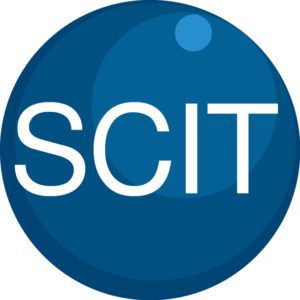
Muna Aryal Rizal, PhD
Mentor: Jeremy Dahl, PhD and Raag Airan, MD, PhD
Noninvasive Focused Ultrasound Accelerates Glymphatic Transport to Bypass the Blood-Brain Barrier
ABSTRACT
Recent advancement in neuroscience revealed that the Central Nervous System (CNS) comprise glial-cell driven lymphatic system and coined the term called “Glymphatic pathway” by Neuroscientist, Maiden Nedergaard. Furthermore, it has been proven in rodent and non-human primate studies that the glymphatic exchange efficacy can decay in healthy aging, alzheimer’s disease models, traumatic brain injury, cerebral hemorrhage, and stroke. Studies in rodents have also shown that the glymphatic function can accelerate by doing easily-implemented, interventions like physical exercise, changes in body posture during sleep, intake of omega-3 polyunsaturated fatty acids, and low dose alcohol (0.5 g/kg). Here, we proposed for the first time to accelerate the glymphatic function by manipulating the whole-brain ultrasonically using focused ultrasound, an emerging clinical technology that can noninvasively reach virtually throughout the brain. During this SCIT seminar, I will introduce the new ultrasonic approach to accelerates glymphatic transport and will share some preliminary findings.
Eduardo Somoza, MD
Mentor: Sandy Napel, PhD
Prediction of Clinical Outcomes in Diffuse Large B-Cell Lymphoma (DLBCL) Utilizing Radiomic Features Derived from Pretreatment Positron Emission Tomography (PET) Scan
ABSTRACT
Diffuse Large B-Cell lymphoma (DLBCL) is the most common type of lymphoma, accounting for a third of cases worldwide. Despite advancements in treatment, the five-year percent survival for this patient population is around sixty percent. This indicates a clinical need for being able to predict outcomes before the initiation of standard treatment. The approach we will be employing to address this need is the creation of a prognostic model from pretreatment clinical data of DLBCL patients seen at Stanford University Medical Center. In particular, there will be a focus on the derivation of radiomic features from pretreatment positron emission tomography (PET) scans as this has not been thoroughly investigated in similar published research efforts. We will layout the framework for our approach, with an emphasis on the aspects of our design that will allow for the translation of our efforts to multiple clinical settings. More importantly, we will discuss the importance and challenges of assembling a quality clinical database for this type of research. Ultimately, we hope our efforts will lead to the development of a prognostic model that can be utilized to guide treatment in DLBCL patients with refractory disease and/or high risk of relapse after completion of standard treatment.

Thursday MIPS Roundtable: “Ask the Radiologist about COVID-19”
Hosted by Dr. Heike Daldrup-Link & Dr. Gunilla Jacobson
Join us virtually to ask anything you would like to know about COVID-19 and the current status in our community. This week we will open the floor for questions. Please prepare questions related to COVID-19. Feel free to submit questions in advance to Ashley Williams (ashleylw@stanford.edu) or submit them in the chat on Zoom.
Meeting URL: https://stanford.zoom.us/j/186504700
Dial: +1 650 724 9799 or +1 833 302 1536
Meeting ID: 186 504 700c talking about the future of medicine and science.

Thursday MIPS Roundtable
Hosted by Dr. Kathy Ferrara & Dr. Gunilla Jacobson
Join us virtually to ask anything you would like to know about career plans, collaborations, new expertise and online lectures during the shutdown. Feel free to submit questions in advance to Ashley Williams (ashleylw@stanford.edu) or submit them in the chat on Zoom.
1:30-2:00 PM | Dr. Kathy Ferrara, Ph.D.
“Developing a career plan, collaborations and new expertise during the shutdown”
Professor of Radiology
Stanford University
2:00-2:30 PM | Dr. Angie Louie, Ph.D.
“How to create online lectures using Camtasia, Playposit and Canvas”
Professor of Biomedical Engineering
UC Davis
Meeting URL: https://stanford.zoom.us/j/186504700
Dial: +1 650 724 9799 or +1 833 302 1536
Meeting ID: 186 504 700

Thursday MIPS Roundtable: ePad: A Web-based Imaging Informatics Platform for Image Annotation and Quantitative Analysis
Come learn about ePAD (https://epad.stanford.edu) from Dr. Rubin’s lab, a freely-accessible web-based informatics platform for universal access to radiology images, annotations, and quantitative analysis. We’ll also open the floor to a discussion on integrating ePAD into the SCi3 preclinical imaging workflow and how together we can crowdsource data sharing and reuse, and accelerate quantitative imaging research for everyone.
Daniel Rubin, PhD
Professor of Biomedical Data Science, of Radiology, of Medicine, and, by courtesy, Ophthalmology and of Computer Science
Jason Thanh Lee, PhD
Director of the Clark Center Facility
Laura Pisani, PhD
Associate Director of the Clark Center Facility
Frezghi Habet, PhD
Director of the Porter Drive Facility
MIPS Roundtables will be every Thursday from 1:30-2:30pm showcasing various topics and are open to all interested.
Please note Zoom information does change week to week.
4/9 Meeting URL: https://stanford.zoom.us/j/114866791
Dial: +1 650 724 9799 or +1 833 302 1536
Meeting ID: 114 866 791

Thursday MIPS Roundtable: Dr. Michelle James & Dr. Ted Graves
1:30-2:00 PM – Michelle L. James, Ph.D.
Neuroimmune Imaging Research and Discovery (NiRD) Lab
Assistant Professor of Radiology and of Neurology
Stanford University
2:00-2:30 PM – Edward “Ted” Graves, Ph.D.
Imaging Radiobiology Laboratory, Division of Radiation Oncology Medical Physics
“Using Imaging to Study Radiation Biology”
Associate Professor of Radiation Oncology (Radiation Physics) and, by courtesy, of Radiology
Stanford University
MIPS Roundtables will be every Thursday from 1:30-2:30pm showcasing various topics and are open to all interested.
Please note Zoom information does change week to week.
4/16 Meeting URL: https://stanford.zoom.us/j/406957830
Dial: +1 650 724 9799 or +1 833 302 1536
Meeting ID: 406 957 830

“Tumor-Immune Interactions in TNBC Brain Metastases”
Maxine Umeh Garcia, PhD
ABSTRACT: It is estimated that metastasis is responsible for 90% of cancer deaths, with 1 in every 2 advanced staged triple-negative breast cancer patients developing brain metastases – surviving as little as 4.9 months after metastatic diagnosis. My project hypothesizes that the spatial architecture of the tumor microenvironment reflects distinct tumor-immune interactions that are driven by receptor-ligand pairing; and that these interactions not only impact tumor progression in the brain, but also prime the immune system (early on) to be tolerant of disseminated cancer cells permitting brain metastases. The main goal of my project is to build a model that recapitulates tumor-immune interactions in brain-metastatic triple-negative breast cancer, and use this model to identify novel druggable targets to improve survival outcomes in patients with devastating brain metastases.
“Classification of Malignant and Benign Peripheral Nerve Sheath Tumors With An Open Source Feature Selection Platform”
Michael Zhang, MD
ABSTRACT: Radiographic differentiation of malignant peripheral nerve sheath tumors (MPNSTs) from benign PNSTs is a diagnostic challenge. The former is associated with a five-year survival rate of 30-50%, and definitive management requires gross total surgical with wide negative margins in areas of sensitive neurologic function. This presentation describes a radiomics approach to pre-operatively identifying a diagnosis, thereby possibly avoiding surgical complexity and debilitating symptoms. Using an open-source, feature extraction platform and machine learning, we produce a radiographic signature for MPNSTs based on routine MRI.

Thursday MIPS Roundtable: Thera(g)nostics: Current clinical use and future needs
1:30-2:15 PM | Dr. Carina Mari Aparici, M.D.
Thera(g)nostics: Current clinical use and future needs
Bringing the clinical needs with preclinical research efforts
Clinical Professor of Radiology – Nuclear Medicine
Director, Targeted Radionuclide Therapy Program
Stanford University
2:15-2:30 PM | Dr. Gunilla Jacobson, Ph.D.
MIPS Theranostics Interest Group
How to join and learn more
Deputy Director
Molecular Imaging Program at Stanford, Radiology
Stanford University
MIPS Roundtables will be every Thursday from 1:30-2:30pm showcasing various topics and are open to all interested.
Please note Zoom information does change week to week.
4/23 Meeting URL: https://stanford.zoom.us/j/639510777
Dial: +1 650 724 9799 or +1 833 302 1536
Meeting ID: 639 510 777

Thursday MIPS Roundtable: Faculty Lab Showcase
1:30-2:00 PM | Dr. Guillem Pratx, Ph.D.
The Physical Oncology Lab
Assistant Professor of Radiation Oncology (Radiation Physics)
Stanford University
2:00-2:30 PM | Dr. Craig Levin, Ph.D.
Molecular Imaging Instrumentation Laboratory
Professor of Radiology and, by courtesy, of Physics,
of Electrical Engineering and of Bioengineering
Stanford University
MIPS Roundtables will be every Thursday from 1:30-2:30pm showcasing various topics and are open to all interested.
Please note Zoom information does change week to week.
4/30 Meeting URL: https://stanford.zoom.us/j/630252651
Dial: +1 650 724 9799 or +1 833 302 1536
Meeting ID: 630 252 651

Thursday MIPS Roundtable: Faculty Lab Showcase
1:30-2:00 PM | Dr. Raag Airan, M.D., Ph.D.
Airan Lab: Noninvasive Control of the Nervous System
Assistant Professor of Radiology and, by courtesy, of Materials Science and Engineering and of Psychiatry and Behavioral Sciences
Stanford University
2:00-2:30 PM | Dr. Daniel Spielman, Ph.D.
The Spielman Laboratory: In Vivo MR Spectroscopy and Multinuclear Imaging
Professor of Radiology and, by courtesy, of Electrical Engineering
Stanford University
MIPS Roundtables will be every Thursday from 1:30-2:30pm showcasing various topics and are open to all interested.
Please note Zoom information does change week to week.
5/7 Meeting URL: https://stanford.zoom.us/j/91812578814
Dial: +1 650 724 9799 or +1 833 302 1536
Meeting ID: 918 1257 8814

Thursday MIPS Roundtable: Faculty Lab Showcase
1:30-2:00 PM | Dr. Gozde Durmus, Ph.D.
Levitating Cells for Applications in Biology and Medicine
Assistant Professor of Radiology
Stanford University
2:00-2:30 PM | Dr. Ramasamy Paulmurugan, Ph.D.
Cellular Pathway Imaging Laboratory (CPIL)
Associate Professor of Radiology
Stanford University
MIPS Roundtables will be every Thursday through May from 1:30-2:30pm showcasing various topics and are open to all interested.
Please note Zoom information does change week to week.
5/14 Meeting URL: https://stanford.zoom.us/j/97661102825
Dial: +1 650 724 9799 or +1 833 302 1536
Meeting ID: 976 6110 2825